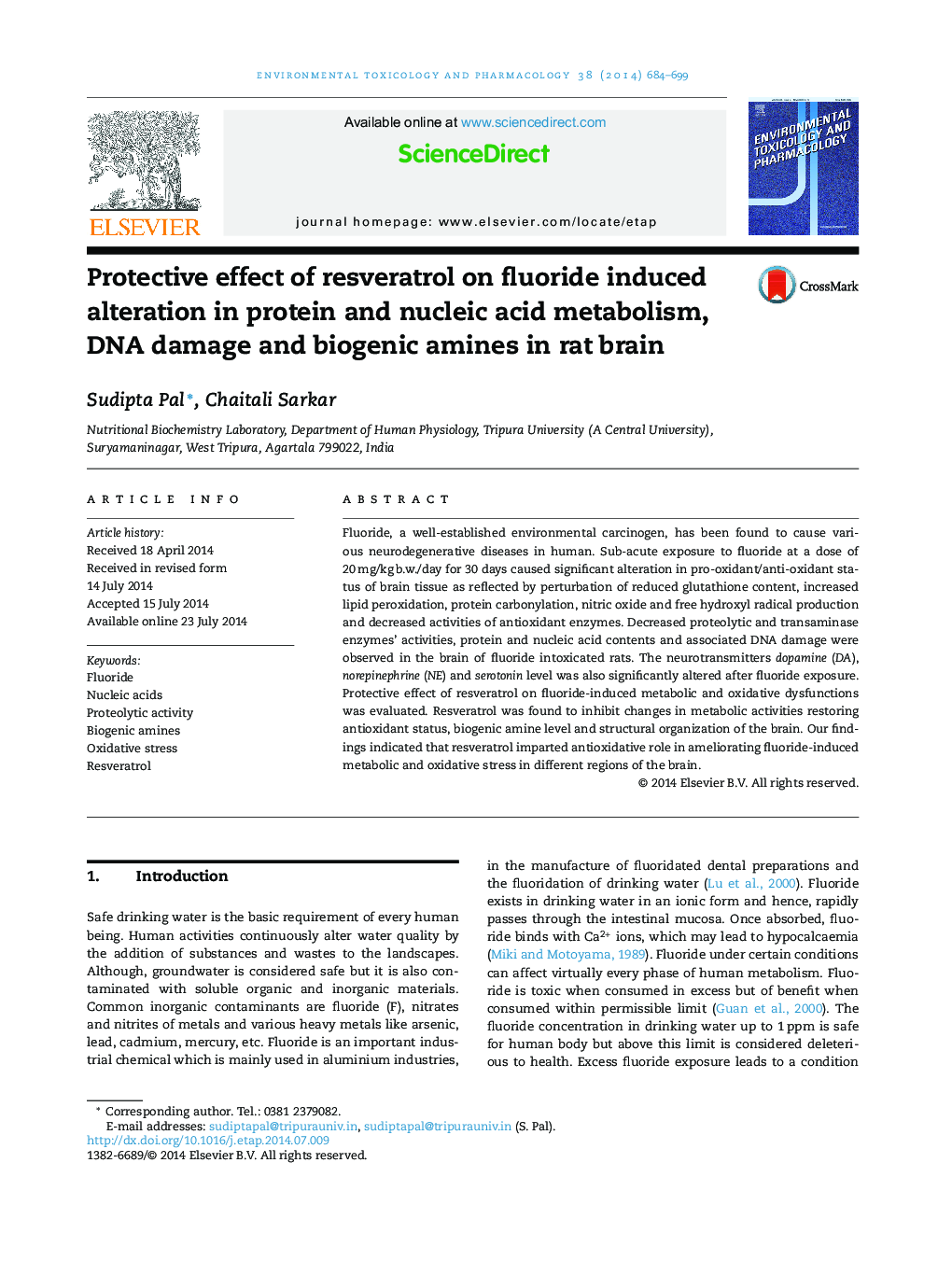| Article ID | Journal | Published Year | Pages | File Type |
|---|---|---|---|---|
| 2583627 | Environmental Toxicology and Pharmacology | 2014 | 16 Pages |
•Fluoride, the 13th most abundant element on the earth's crust, is a chemical ion of the element fluorine.•Fluoride, a neurotoxic element impairs the brain function via oxidative stress.•Fluoride can alter the metabolic status of mammalian brain.•Resveratrol, a flavonoid that found abundantly in the skin of grapes, berries, and peanuts.•Resveratrol may provide strong ameliorative effect on fluoride induced brain toxicity.
Fluoride, a well-established environmental carcinogen, has been found to cause various neurodegenerative diseases in human. Sub-acute exposure to fluoride at a dose of 20 mg/kg b.w./day for 30 days caused significant alteration in pro-oxidant/anti-oxidant status of brain tissue as reflected by perturbation of reduced glutathione content, increased lipid peroxidation, protein carbonylation, nitric oxide and free hydroxyl radical production and decreased activities of antioxidant enzymes. Decreased proteolytic and transaminase enzymes’ activities, protein and nucleic acid contents and associated DNA damage were observed in the brain of fluoride intoxicated rats. The neurotransmitters dopamine (DA), norepinephrine (NE) and serotonin level was also significantly altered after fluoride exposure. Protective effect of resveratrol on fluoride-induced metabolic and oxidative dysfunctions was evaluated. Resveratrol was found to inhibit changes in metabolic activities restoring antioxidant status, biogenic amine level and structural organization of the brain. Our findings indicated that resveratrol imparted antioxidative role in ameliorating fluoride-induced metabolic and oxidative stress in different regions of the brain.
Graphical abstractFigure optionsDownload full-size imageDownload as PowerPoint slide
